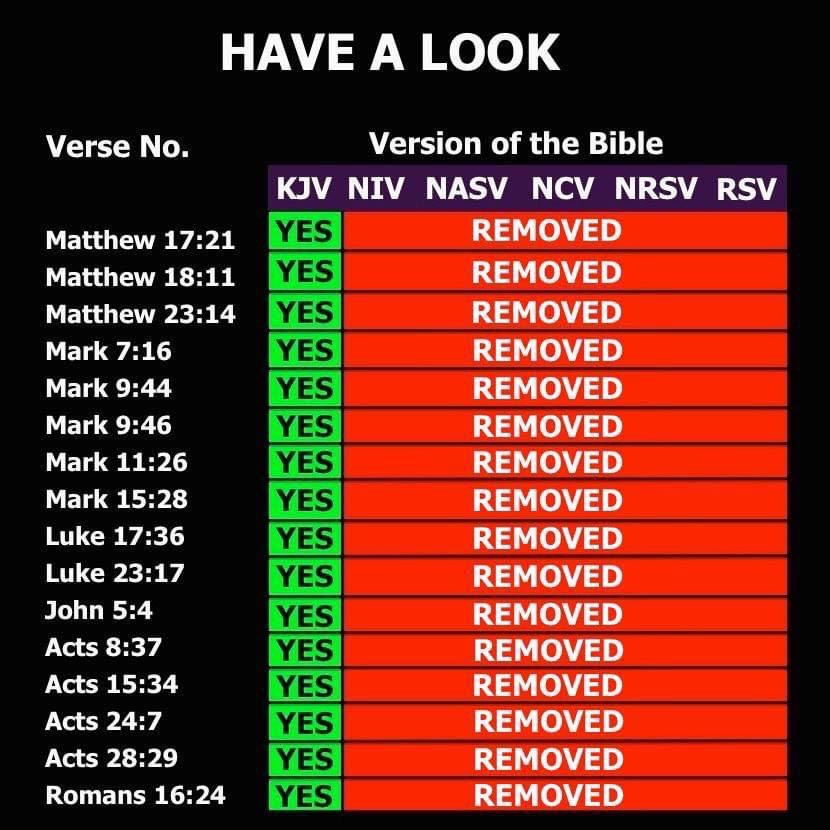The Bible is a sacred text that has been translated into numerous versions, each with its own unique characteristics and translation philosophy. Among the various translations available, the King James Version (KJV) and New King James Version (NKJV) hold a special place for many individuals. In this article, we explore the reasons why some people find the KJV and NKJV important and express caution regarding certain other translations.

Understanding Bible Translations:
Different Translation Philosophies:
Bible translations employ various translation philosophies, each with its own strengths and nuances. The KJV and NKJV are known for their formal equivalence approach, aiming to maintain a word-for-word translation that preserves the traditional language and literary beauty of the original texts. This style can appeal to individuals who appreciate the historical and poetic aspects of the Bible.
Dynamic Equivalence Translations:
Other translations, such as the New International Version (NIV), New American Standard Bible (NASB), New Century Version (NCV), New Revised Standard Version (NRSV), and Revised Standard Version (RSV), utilize dynamic equivalence. This approach prioritizes conveying the meaning of the original text in modern language, striving for clarity and ease of understanding.

Preference for the KJV and NKJV:
Historical Significance:
The King James Version has a rich historical legacy and played a significant role in shaping English literature and religious discourse. Many individuals appreciate the archaic language and the connection it provides to the past. The NKJV, as an updated version of the KJV, retains much of its language while making minor revisions for clarity and accuracy.
Familiarity and Tradition:
For some, the KJV and NKJV have become familiar and cherished translations due to their usage in religious communities, personal upbringing, or longstanding family traditions. The language and cadence of these translations can evoke a sense of reverence and familiarity, creating a deeper spiritual connection for those who grew up with them.
Verse Differences:
It’s important to note that minor variations in verse wording or numbering can exist among different translations due to differences in textual sources or interpretation. However, these variations rarely affect the core teachings and messages of the Bible. It is recommended to compare verses across multiple translations or consult scholarly resources for a more comprehensive understanding.
Embracing Bible Translation Diversity:
Meeting Diverse Needs:
Every individual has unique preferences and needs when it comes to Bible translations. While some may find comfort and value in the KJV and NKJV, others may prefer dynamic equivalence translations for their accessibility and ease of comprehension. The diversity of translations allows for a broader reach and caters to the needs of diverse readers.
Seeking Understanding and Context:
Regardless of the translation used, it’s essential to approach the Bible with a desire for understanding, accompanied by study tools, commentaries, and resources that provide historical and cultural context. Engaging with the original languages, consulting scholarly sources, and seeking guidance from trusted religious leaders can enhance our understanding of the biblical text.
The choice of Bible translation is a personal one, influenced by individual preferences, cultural backgrounds, and spiritual connections. While the King James Version (KJV) and New King James Version (NKJV) hold significance for many, it’s important to respect and appreciate the diversity of Bible translations available. Each translation brings its own strengths and unique approach, ultimately serving the purpose of making the Word of God accessible to people from various backgrounds. What matters most is engaging with the Bible’s teachings, seeking understanding, and applying its wisdom to our lives, regardless of the specific translation we choose to read and study.
As an Amazon Associate we earn from qualifying purchases through some links in our articles.



